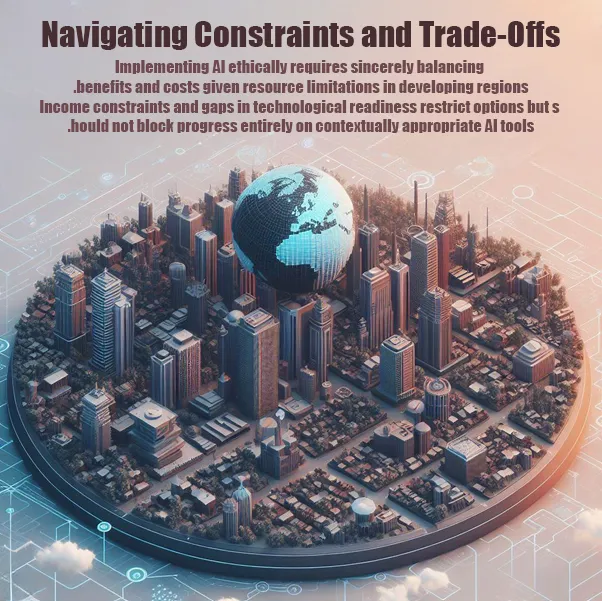The Cobalt Market After Congo's Export Ban: Awaiting The Quota Plan

Table of Contents
The Impact of the Export Ban on Global Cobalt Supply
Pre-Ban Cobalt Market Dynamics
Before the export ban, the cobalt market was already experiencing fluctuations. Demand, largely driven by the burgeoning EV industry and increasing smartphone production, was steadily rising.
- Price Fluctuations: Cobalt prices experienced significant volatility in the years leading up to the ban, influenced by factors such as supply chain disruptions and geopolitical events.
- Major Consumers: Major consumers included battery manufacturers like CATL, LG Chem, and Panasonic, alongside numerous smaller players in the electronics industry.
- Supply Chain Participants: The supply chain involved miners in the DRC, smelters and refiners across various countries, and traders who facilitated the movement of cobalt globally.
Immediate Effects of the Ban
The immediate consequences of the DRC's export ban were dramatic.
- Price Surges: Cobalt prices surged significantly in the immediate aftermath of the ban, reflecting the sudden shortage of supply. This increased the cost of producing EV batteries and other cobalt-dependent products.
- Manufacturer Shortages: Battery manufacturers and other businesses reliant on cobalt experienced critical shortages, forcing them to seek alternative sourcing strategies or delay production.
- Alternative Sourcing Strategies: Companies scrambled to find alternative sources of cobalt, often at higher costs, from countries like Australia, Canada, and Zambia. This led to increased transportation costs and supply chain complexities.
Geopolitical Implications
The cobalt export ban has significant geopolitical implications.
- International Relations: The ban strained relationships between the DRC and its trading partners, raising concerns about resource nationalism and the reliability of cobalt supply chains.
- Trade Disputes: The situation has the potential to escalate into trade disputes, particularly if the quota system is perceived as unfair or discriminatory by other nations. This uncertainty affects international trade agreements and confidence in the DRC as a reliable supplier.
Analyzing the Proposed Quota Plan
Details of the Quota System
The proposed quota plan aims to regulate cobalt exports from the DRC. The specifics are still emerging, but key aspects include:
- Allocation Criteria: The criteria for allocating cobalt export quotas remain unclear, raising concerns about fairness, transparency, and potential for favoritism.
- Transparency Mechanisms: The level of transparency surrounding the quota allocation process will be crucial for building confidence among buyers and ensuring fair market conditions. A lack of transparency can lead to suspicion of corruption.
- Implementation Timeframe: The timeframe for the full implementation of the quota system remains uncertain, adding to the existing market uncertainty.
Potential Benefits of the Quota Plan
A well-designed quota plan could offer several benefits:
- Increased Price Stability: By controlling the supply, a quota system could potentially lead to more stable cobalt prices, reducing the volatility experienced in recent years.
- Improved Market Transparency: A transparent quota system, with clear allocation criteria and monitoring mechanisms, could enhance market transparency and predictability.
- Potential for Sustainable Mining Practices: The quota system could be used to incentivize sustainable mining practices and environmental protection within the DRC.
Potential Drawbacks of the Quota Plan
However, the quota plan also carries potential risks:
- Potential for Corruption: The implementation of quotas without sufficient oversight could create opportunities for corruption and rent-seeking behavior, potentially benefiting select actors at the expense of others.
- Difficulties in Enforcement: Enforcing a quota system effectively in a region with existing challenges related to governance and infrastructure could prove extremely difficult.
- Potential for Market Distortions: The quota system could distort market signals and create artificial scarcity, impacting innovation and competition in the cobalt market.
Future Outlook for the Cobalt Market
Price Predictions
Predicting future cobalt prices is inherently challenging. However, several factors will play a significant role:
- EV Demand: The continued growth of the EV market will remain a key driver of cobalt demand.
- Alternative Battery Technologies: The development and adoption of alternative battery technologies with lower or no cobalt content could significantly impact future demand.
Investment Opportunities and Risks
The cobalt market presents both investment opportunities and substantial risks:
- Growth Potential: Companies involved in sustainable cobalt mining, refining, and battery production may experience significant growth.
- Political Instability: Political instability in the DRC and other cobalt-producing countries remains a major risk for investors.
- Environmental Concerns: Concerns about the environmental and social impacts of cobalt mining must be considered when making investment decisions.
Sustainable Cobalt Sourcing
Sustainable cobalt sourcing is no longer optional; it's essential for the long-term health of the cobalt market.
- Ethical and Environmentally Responsible Mining: Investing in and supporting ethical and environmentally responsible mining practices is critical for ensuring the long-term viability of the industry.
- Certifications and Standards: Adherence to industry certifications and standards related to responsible sourcing will be increasingly important for businesses seeking to minimize their environmental and social risks.
Conclusion: Navigating the Cobalt Market After Congo's Export Ban
The DRC's export ban and the anticipated quota plan have created a complex and uncertain environment in the Cobalt Market After Congo's Export Ban. The impact on global supply, prices, and geopolitical relations is significant. The proposed quota system offers the potential for increased price stability and sustainable mining practices but also carries risks related to corruption, enforcement, and market distortions. Understanding these factors is critical for navigating the future of the cobalt market.
To stay informed about developments in the Cobalt Market After Congo's Export Ban, it's vital to follow industry news, research reports, and governmental announcements. Conduct thorough due diligence before making any investment decisions related to cobalt. The long-term implications of this situation highlight the urgent need for responsible mining practices and transparent supply chains to ensure a stable and sustainable future for this crucial resource.

Featured Posts
-
 Navigating The Complexities Western Automakers China Market Struggles
May 16, 2025
Navigating The Complexities Western Automakers China Market Struggles
May 16, 2025 -
 Zack Steffens Heroics Harris And Bassett Goals Secure Rapids Win
May 16, 2025
Zack Steffens Heroics Harris And Bassett Goals Secure Rapids Win
May 16, 2025 -
 Hyeseong Kim Called Up Impact On The Dodgers Lineup
May 16, 2025
Hyeseong Kim Called Up Impact On The Dodgers Lineup
May 16, 2025 -
 Profitable Bets Nba And Nhl Second Round Playoffs
May 16, 2025
Profitable Bets Nba And Nhl Second Round Playoffs
May 16, 2025 -
 Padres Sweep Giants In Petco Park Showdown
May 16, 2025
Padres Sweep Giants In Petco Park Showdown
May 16, 2025
Latest Posts
-
 Tonights Nba Game Hornets Vs Celtics Prediction And Best Odds
May 16, 2025
Tonights Nba Game Hornets Vs Celtics Prediction And Best Odds
May 16, 2025 -
 The One Obstacle Facing Every Top 10 Nba Team
May 16, 2025
The One Obstacle Facing Every Top 10 Nba Team
May 16, 2025 -
 Celtics Vs Hornets Prediction Expert Picks And Betting Odds
May 16, 2025
Celtics Vs Hornets Prediction Expert Picks And Betting Odds
May 16, 2025 -
 Rekordinis Boston Celtics Pardavimas Lietuviai Tarp Pirkeju Nebuvo
May 16, 2025
Rekordinis Boston Celtics Pardavimas Lietuviai Tarp Pirkeju Nebuvo
May 16, 2025 -
 Hornets Vs Celtics Game Tonight Prediction Picks And Odds
May 16, 2025
Hornets Vs Celtics Game Tonight Prediction Picks And Odds
May 16, 2025
